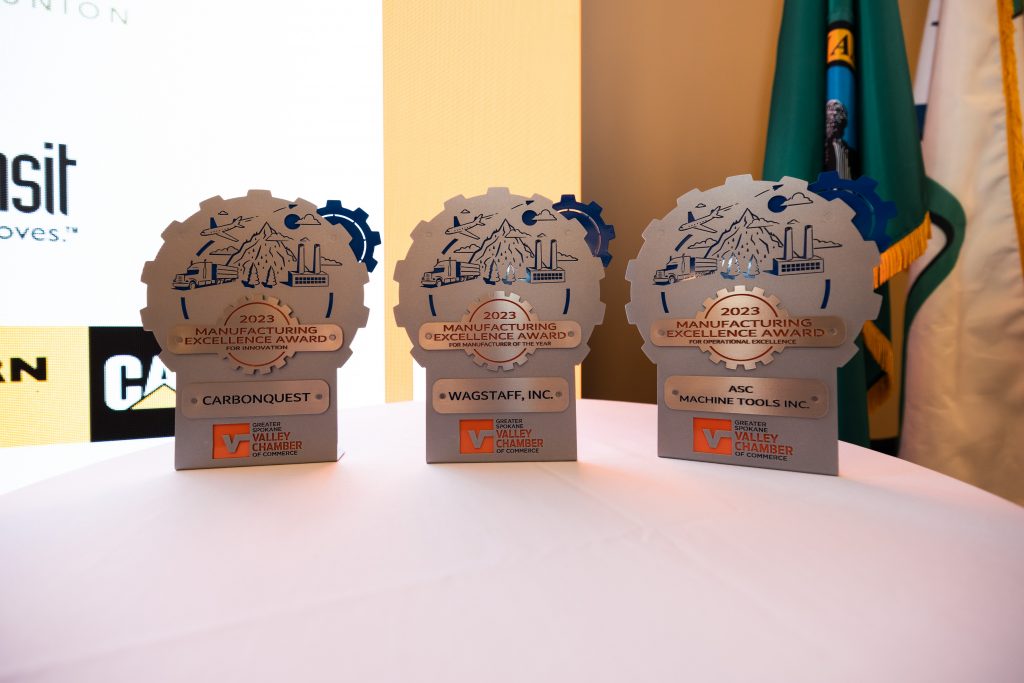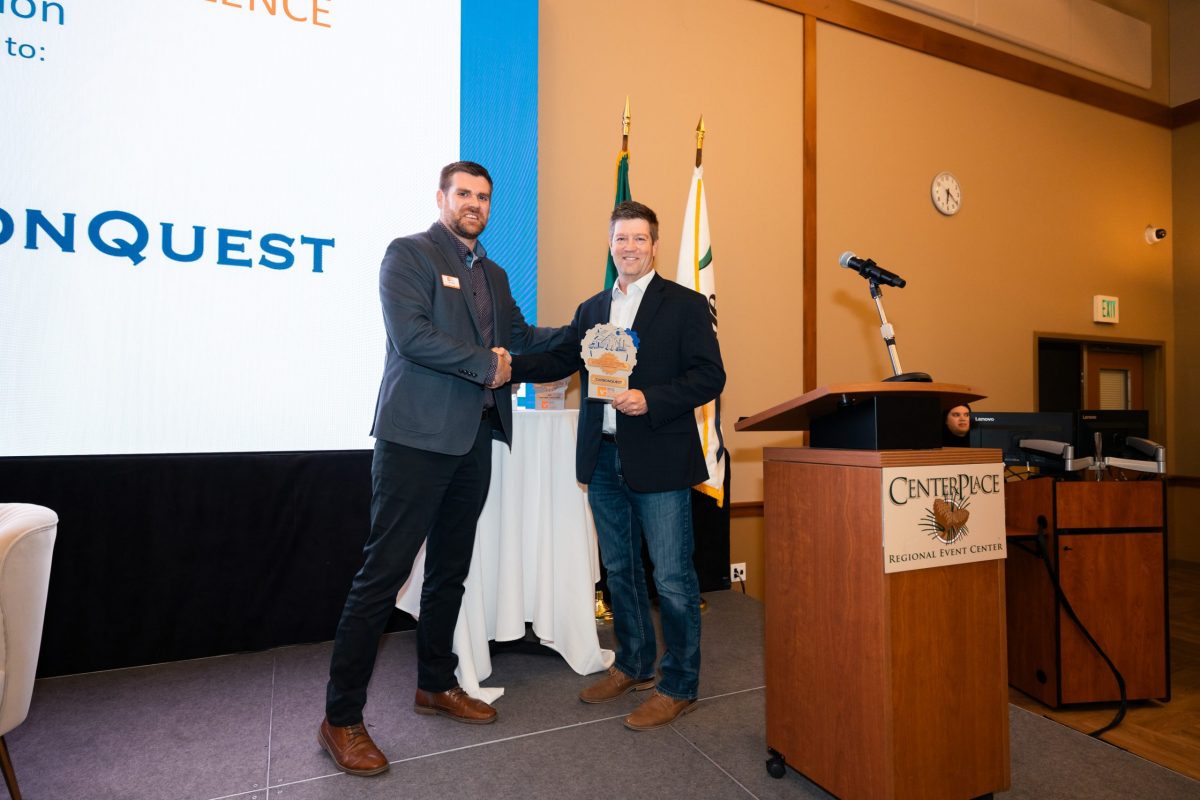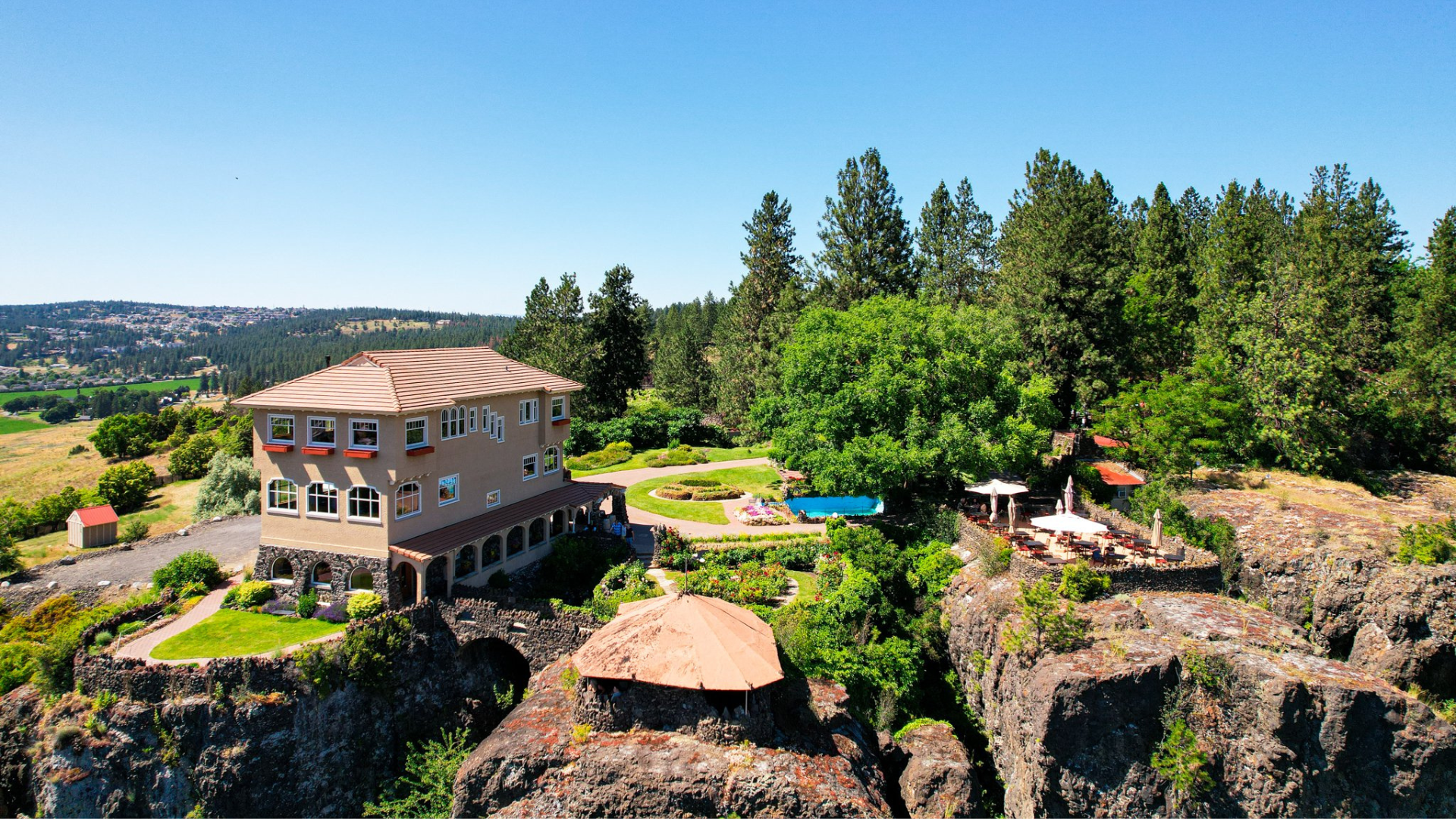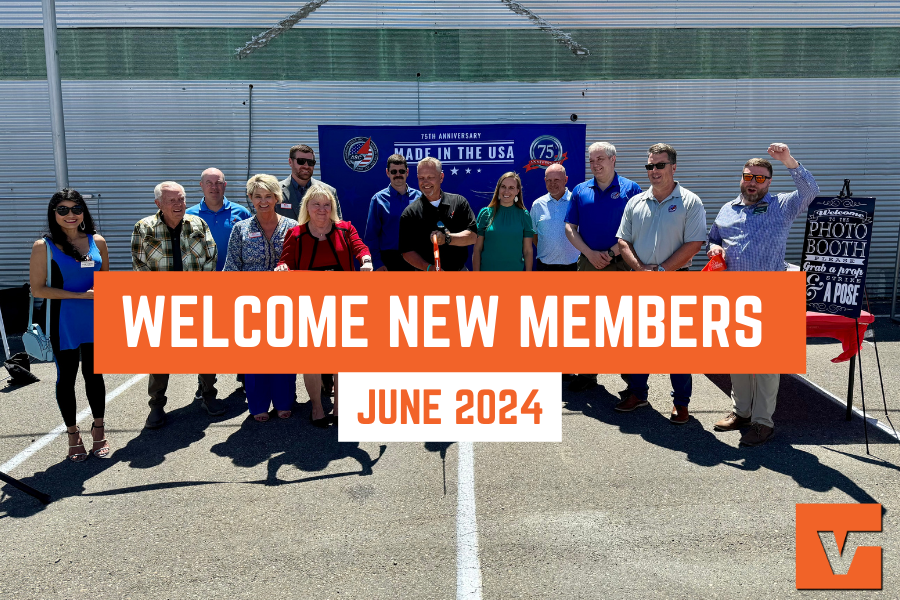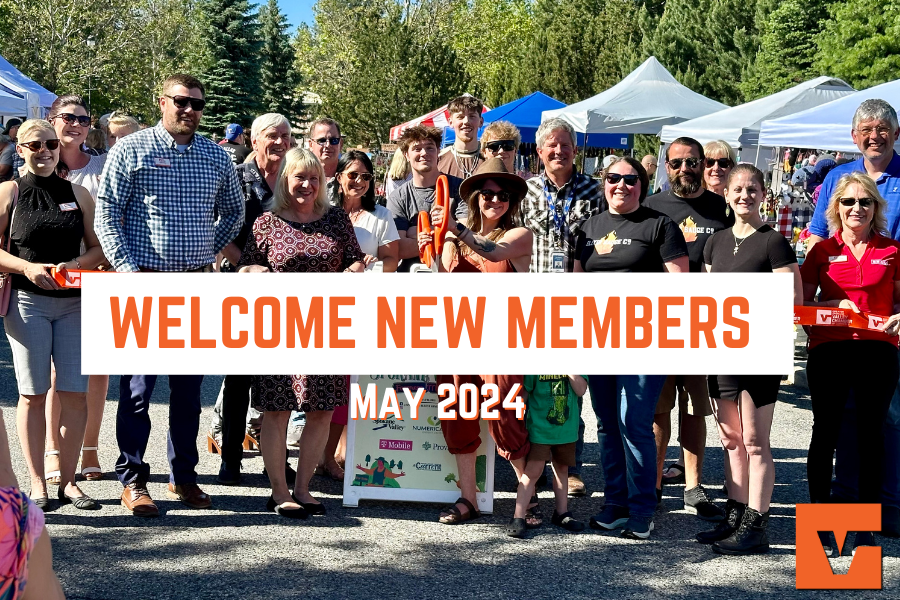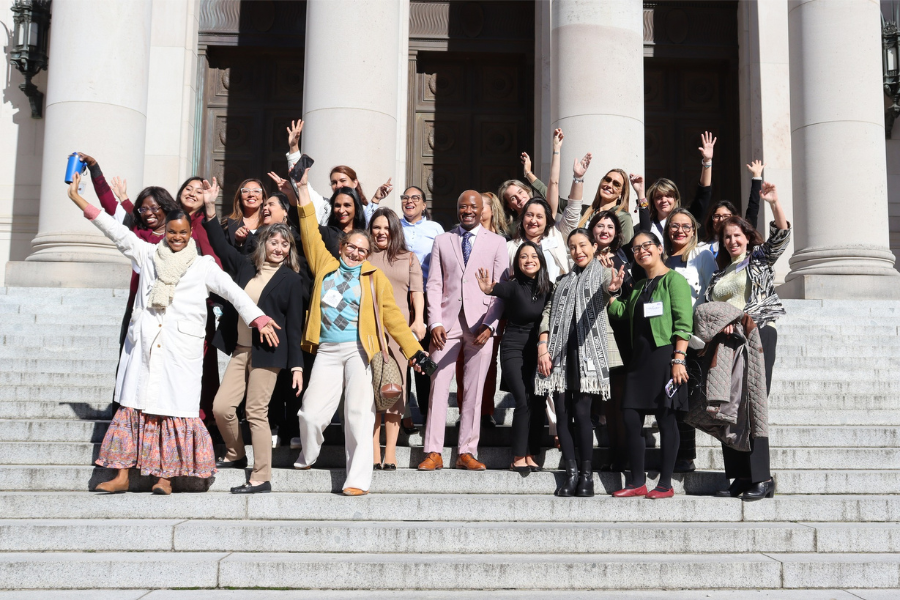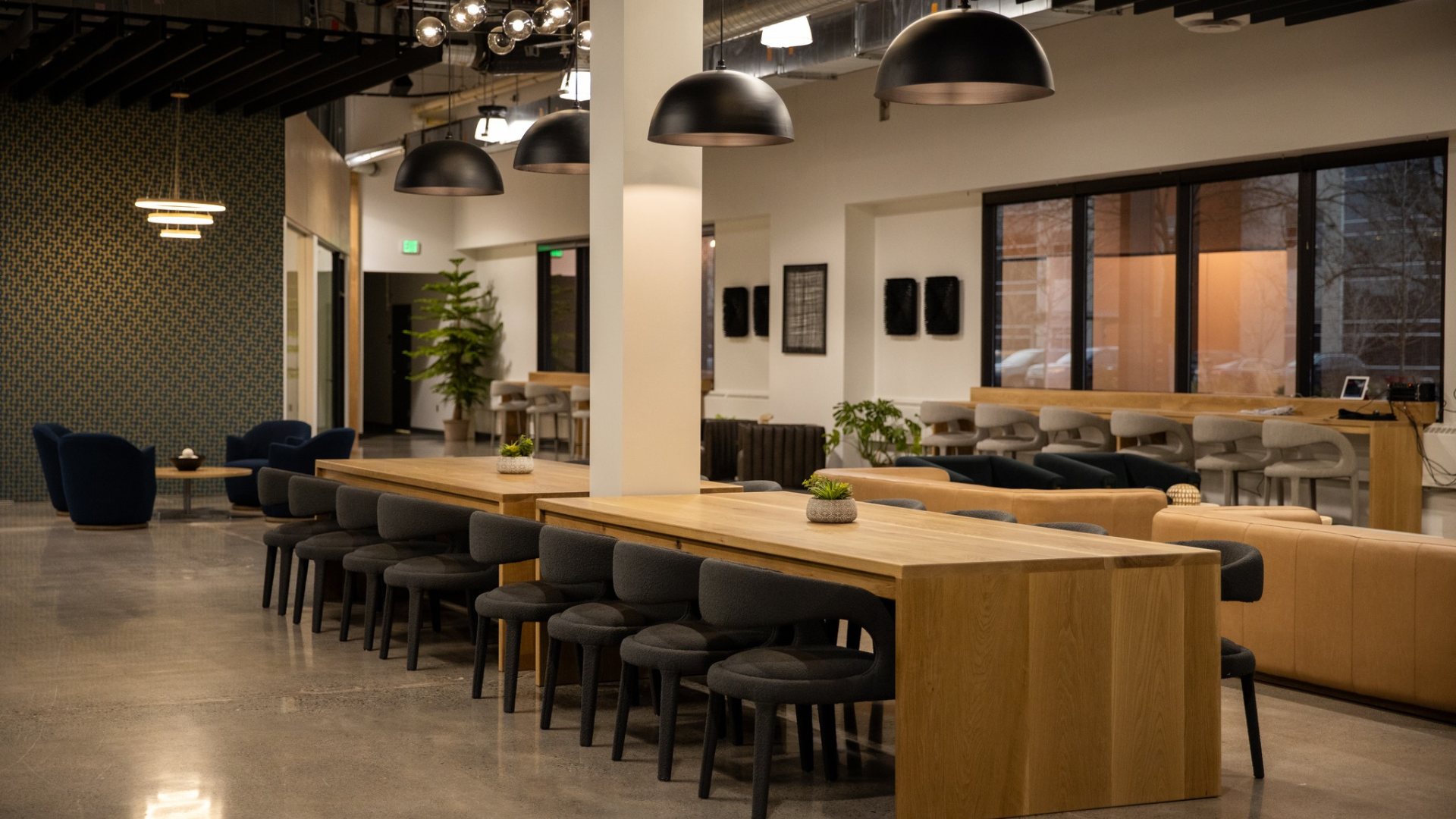CarbonQuest has now won the Manufacturing Award for Innovation for the second year in a row. Starting in 2024, businesses in Washington State will be required to pay for how much carbon dioxide they release into the atmosphere, and CarbonQuest’s carbon capture technology is the only immediate point-sourced solution available.
In 2021, Washington State passed the Climate Commitment Act (CCA), which caps and reduces greenhouse gas emissions from Washington’s largest emitting sources and industries, “allowing businesses to find the most efficient path to lower carbon emissions.” Under the new law, businesses that emit over 25,000 metric tons of carbon a year will be required to pay for each metric ton. Businesses that choose not to comply will be fined $50,000 per violation per day. And the companies that meet the law’s criteria have until Nov. 1, 2024, to cover 30% of their total 2023 emissions. Businesses may see this as unfeasible and simply too expensive to implement. CarbonQuest believes they have found an innovative solution to their dilemma.
“We can provide a lower cost alternative that provides an immediate and significant reduction to businesses carbon footprint,” said Shane Johnson, CarbonQuest’s President and CEO. “CarbonQuest’s technology is the only immediate solution available for large-scale building decarbonization today.” That technology is carbon capture.
Carbon capture is a process that captures CO2 directly from a building before it is emitted. And CarbonQuest has a unique way of collecting CO2. They remove Carbon Dioxide, Oxygen, Nitrogen, and Water from the gas flue during regular building operations. Then, they send it through a heat exchanger, compressor, and dryer. The machine CarbonQuest uses is custom-made for each building, is set up in the basement within a week, and only takes up a few parking spots’ worth of space. But CarbonQuest didn’t win the innovation award twice just for that. They take it a step further. After extracting the carbon from the building, it is liquified through a patented process. They then transport the liquid CO2, or “Sustainable CO2”(™), to local businesses that can use the carbon for their production processes, such as cement manufacturers—enabling a true circular carbon economy within the city.
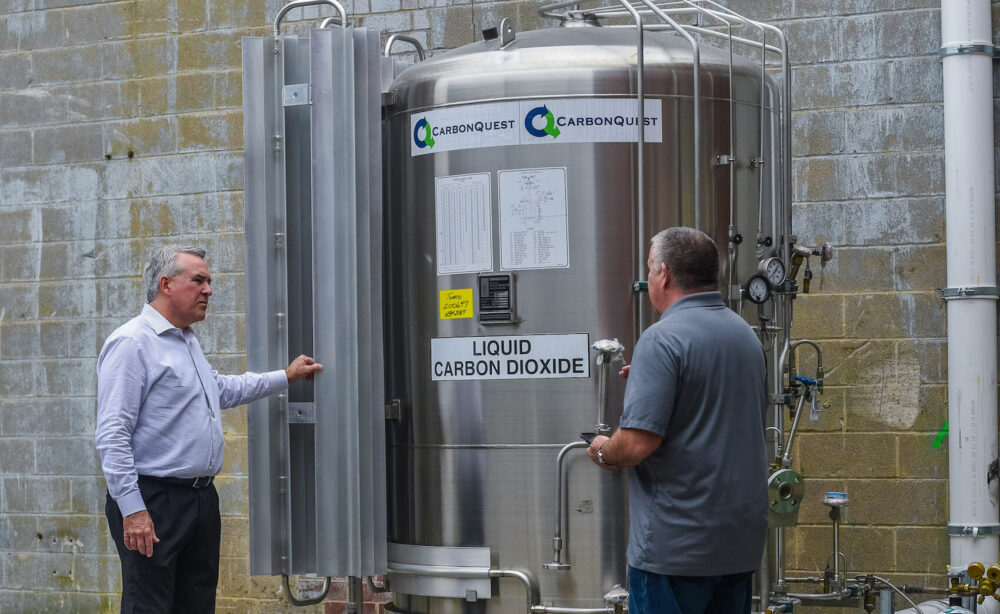
CarbonQuest is based in Spokane Valley, where its research and development team works. The other half of their company is in New York, which also served as their launch market for this technology. In New York, CarbonQuest successfully implemented their technology on a 377,000-square-foot multifamily building “1930 Broadway.” So far, the building has an estimated 25% reduction in CO2 emissions. Yet, this technology still fights to capture the attention of businesses and the mainstream public alike.
“Part of our challenge is potential customers just not knowing of this technology as an option,” Shane said. “It’s a viable option that is commercially ready today, but most companies think electrification is the only path.
The building sector accounts for 40% of annual CO2 emissions. So, it’s a complex ecosystem of things that these building owners can implement when they’re looking to meet their sustainability goals.”
A lot of companies are taking their decarbonization strategies even further than government regulations, aiming to become “carbon neutral” by a specific date. However, achieving that usually involves a mixture of strategies such as carbon offsets like planting trees or restoring forests to absorb carbon dioxide from the atmosphere. Other companies have to take a more direct approach to meet their goals.
“If (as a company) you’re combusting natural gas, a critical component of your building infrastructure, or the goods that you manufacture, and it’s critical to everything you do, you can’t just make it go away,” Steve said. “We now have a solution that allows them to meet their direct emissions target reductions. We can show that if businesses implement carbon capture, they get a much quicker carbon reduction.”
As Washington State prepares to enforce carbon emission reductions on businesses, finding quick and effective solutions is critical. Amazingly, one answer has been created here in Spokane Valley as CarbonQuest provides an affordable decarbonization solution for businesses. However, under the current CCA legislation in Washington State – point sourced carbon capture systems are not included as an allowable carbon offset for companies required to meet the new emission regulations.
